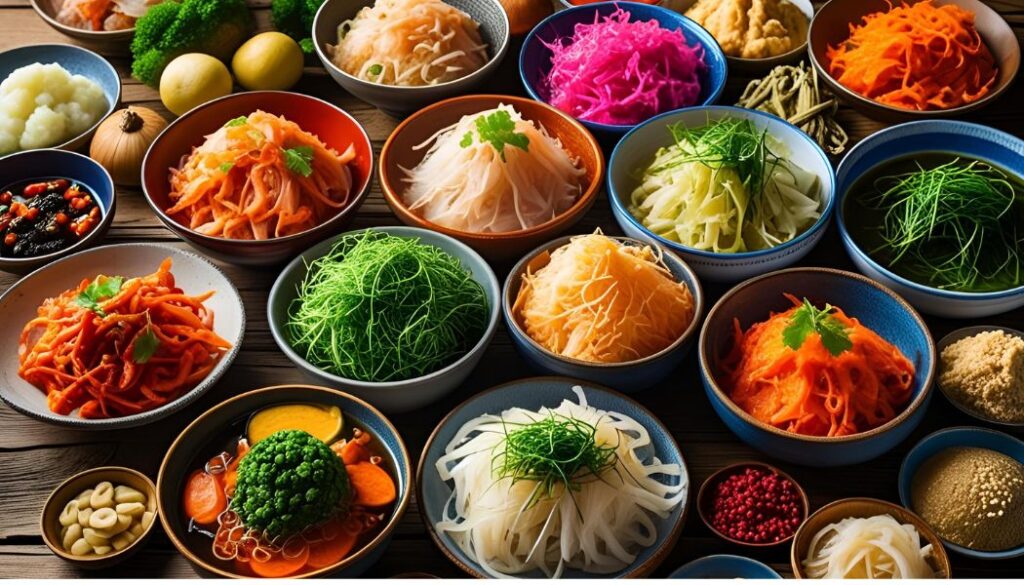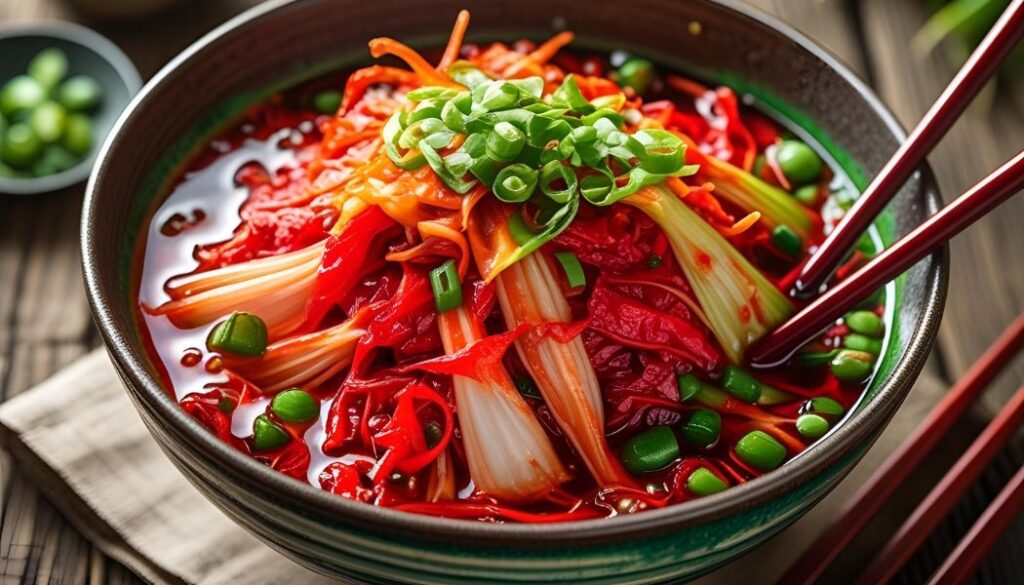
Fermentation is an age-old food preservation technique that transforms ordinary ingredients into flavorful, nutrient-rich superfoods. Whether it’s sauerkraut from Germany, kimchi from Korea, or ogi from Nigeria, fermented foods are packed with probiotics that aid digestion, support the immune system, and promote overall wellness.
External source: Harvard Health – The Benefits of Fermented Foods
1. Kimchi (Korea) – Spicy, Crunchy, and Full of Life
Kimchi is a Korean staple made from fermented napa cabbage, radishes, and chili pepper. It’s not just spicy—it’s alive with healthy bacteria like Lactobacillus kimchii.
Health Benefits:
-
Improves digestion
-
Reduces inflammation
-
Boosts immune function
2. Ogi (Nigeria) – A Local Breakfast Rich in Culture
Popular across West Africa, ogi (pap) is made by fermenting maize, millet, or sorghum. This smooth porridge is often served for breakfast with moi moi or akara.
Health Benefits:
-
Easy to digest
-
Restores gut flora
-
Good for babies and elderly
related post: Explore Nigerian Healthy Breakfast Ideas
3. Sauerkraut (Germany) – A Tangy Gut Booster
Made from fermented cabbage, sauerkraut is rich in vitamin C and beneficial bacteria.
Fun Fact:
German sailors used to eat it to prevent scurvy on long sea voyages!
4. Kefir (Russia/Turkey) – The Drinkable Yogurt with Power
Kefir is a probiotic-rich fermented milk drink that contains more strains of beneficial bacteria than yogurt.
Why It Matters:
-
Strengthens your gut lining
-
May help with lactose intolerance
-
Supports bone health
5. Miso (Japan) – Umami and Nutrient-Rich
Miso is a thick paste made by fermenting soybeans with salt and koji (a type of fungus). It’s the main ingredient in miso soup, often served with sushi.
Did You Know?
Miso is believed to have anticancer properties and supports cardiovascular health.
External resource: WebMD – Health Benefits of Miso
6. Kombucha (China) – The Fizzy Probiotic Tea
Kombucha is a fermented sweet tea that contains live cultures. It’s become a global trend, but its roots trace back to ancient China.
Health Perks:
-
Aids digestion
-
May reduce cholesterol
-
Full of antioxidants
7. Injera (Ethiopia) – Fermented Flatbread Full of Fiber
Injera is a spongy, sour flatbread made from teff flour. It’s naturally gluten-free and full of gut-friendly bacteria.
Cultural Note:
Injera is not just food—it’s also your plate and utensil in Ethiopian meals!
8. Garri Soaking (Nigeria) – Simple Yet Probiotic
Though often overlooked, soaking garri (fermented cassava) in water with milk or sugar introduces you to a basic form of fermented consumption that’s gentle on the stomach.
related: Traditional Nigerian Foods That Aid Digestion
Why Fermented Foods Matter Globally
-
They connect us to our roots
-
Support biodiversity in gut microbiomes
-
Preserve food naturally without additives
-
Bring unique flavors to every table
Whether you’re in Lagos, Tokyo, Berlin, or New York—fermented foods are a universal gift to human health.
Final Thoughts
Fermented foods are more than trendy—they’re deeply rooted in our cultures, health, and heritage. By embracing them, you support your gut, your traditions, and your planet. Start simple, try something new, and let your taste buds (and belly) thank you.
Discover more from Blessing Nnenna Blog
Subscribe to get the latest posts sent to your email.




